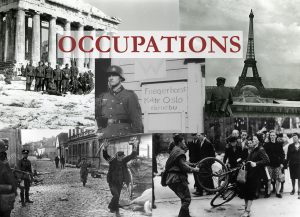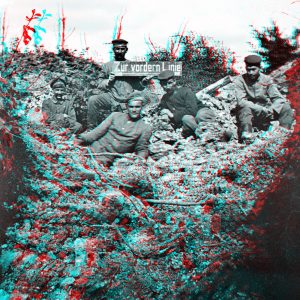CONFERENCE
Occupations in the Age of Total War:
Micro Perspectives and Transnational Research
University of Kent at Canterbury
Keynes College, KLT 5
22 and 23 June 2017
This conference showcases new and ongoing research on military occupations, their socio-cultural contexts and post-war reverberations. Focusing on European societies in the age of the two world wars, the conference will cover a wide range of topics and approaches. We will explore how case studies that foreground individual agency and everyday experiences can enhance transnational research and vice versa. Thus the aim is to bridge the gap between micro and macro perspectives, and between local/regional and global/transnational approaches to the history of both World Wars.
The conference is divided in four thematic sessions: 1/ Elites and Governance, 2/ Spaces, 3/ Social Groups and Dynamics and 4/ Experiences and Memories. A keynote speech by Professor Sophie De Schaepdrijver (Penn State University; currently University of Kent) will open the proceedings. In the evening of 22 June, Dr Nico Wouters (CegeSoma and Ghent University) will launch his new book, Mayoral Collaboration under Nazi Occupation: Belgium, the Netherlands and the North of France, 1938-46, followed by a panel discussion.
The conference is organised jointly by the Centre for the History of War, Media and Society (University of Kent) and the Department of History (Ghent University), in cooperation with CegeSoma (Brussels) and NIOD (Amsterdam). For more information, please contact Dr Stefan Goebel (S.P.Goebel@kent.ac.uk) or Dr Nico Wouters (nico.wouters@cegesoma.be).
To register, visit https://kenthospitality.kent.ac.uk/Register/ageofwar
Programme – FINAL VERSION.
22 June 2017
11.00 – Registration and Coffee.
12.00 – Welcome and Keynote Sophie De Schaepdrijver (Penn State/Kent) – Military Occupations, ‘Sacrifice’, and the Social Contract in Two World Wars
13.00 – Lunch
14.00-16.45 – Session One: Elites and Governance – (Chair: Nico Wouters, CegeSoma & Ghent)
- Philip Boobbyer (Kent) – Pragmatism and Indirect Rule: Lord Rennell and Military Government in Africa and Italy, 1940-1943
- Jan Naert (Ghent) – Governing under Occupation: Belgian and French Mayors during and after World War One, 1914-1921?
- Jan Julia Zurné (CegeSoma) – Maintaining Order in Occupied Belgium? The Brussels Public Prosecutor’s Office and Wartime Political Violence, 1940-1950
15.30-16.00 – Tea
- Markus Wahl (IGM, Stuttgart) – Dictated or Guided? Shaping the ‘New’ Socialist Healthcare System in the Soviet Occupied Zone of Germany, 1945-1949
- Peter Romijn (NIOD, University of Amsterdam) – Dutch Functional Elites in the ‘Long Second World War’, 1940-1949
17.15-17.45 – Break
17.45-18.45 – Book Launch and Panel Discussion
Nico Wouters will briefly present his new book Mayoral Collaboration under Nazi Occupation Belgium, the Netherlands and the North of France (1938-46), followed by a panel discussion between the author and Pieter Lagrou (Université Libre de Bruxelles), Martin Conway (Oxford University) and Sophie De Schaepdrijver (Penn State/Kent), moderated by Stefan Goebel (Kent).
Followed by Wine Reception
20.00 – Conference Dinner, Café du Soleil, Canterbury
23 June 2017
MORNING SESSION
8.30-9.00 – Coffee.
9.00-10.45 – Session 2: Spaces (chair: Stefan Goebel)
- Ismee Tames (NIOD) – Moving through Liminal Spaces in Occupation
- Nigel Perrin (Kent) – Spaces of Resistance in Occupied Paris, 1940-1944
- Christoph Mick (Warwick) – Two Occupations: Lviv 1914/15 and 1939/41
10.45-11.15 – Coffee
11.15 -13.00 – Session 3: Social Groups and Dynamics (chair: Bruno De Wever)
- Gertjan Leenders (Ghent) – Denunciation to the Enemy in Belgium during the First and Second World War
- Jovana Knezevic (Stanford)– Serbian Intelligentsia in the Face of Habsburg Occupation during World War I
13.00-14.00 – Lunch
AFTERNOON SESSION
14.00-15.45 – Session 4: Experiences and Memories (chair: Juliette Pattinson)
- Ludivine Broch (Westminster) – The Merci Train: Remembering the World Wars in 52,000 Objects
- Barbara Deruytter (Ghent) – Popular Sentiments, Ideas and Experiences Expressed in Songs during and Shortly after the Occupation of Belgium, 1914-1918
15.45-16.15 – Closing Comments
16.15-17.00 – Coffee
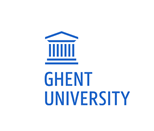
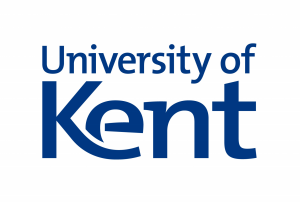
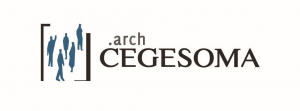

Body and Soil: Corporeality and Territoriality in Great War Europe
International conference
Centre for the Study of War, Propaganda and Society
School of History
University of Kent
4-5 May 2017
Convenor: Sophie De Schaepdrijver, Leverhulme Visiting Professor 2016-2017, University of Kent (scd10@psu.edu)
This small-scale conference addresses the nexus between “body” and “soil” in First World War Europe. It aims to examine the link between, on the one hand, the war’s damage to the human body, and, on the other hand, how the very conduct of the war invested space with meaning, which in turn allowed for the countenancing of bodily damage. Shattered bodies at the front; stunted bodies on the home front – both, to varying extents and varying audiences at varying times, seemed a necessary price to pay for the preservation of national space (however “national space” was defined). Still, the tension between “body” and “soil” was ubiquitous.
This question is of particular interest for the study of the First World War. Obviously, all wars are ultimately fought over space; and, in all wars, the human body is the ultimate theatre. But training the body-and-soil perspective on First World War Europe is particularly rewarding for two reasons. First, this war stood at an apex of national imagining. The idea of the national bolstered mass mobilization to an unprecedented degree, and the link between “nation” and “territory” seemed more self-evident than it had ever been, swaying opinions even in imperial borderlands. The war mapped out belligerent Europe into, first, “fronts”; second, those spaces which the fronts defended (l’arrière, die Heimat, Blighty, vatan, otechestvo); and, third, invaded spaces – to be either liberated or held onto, depending on perspective. Second, this war wreaked unprecedented havoc on the human body precisely at a time when knowledge of the human body had reached a peak. To give just three examples: the term “vitamin” was coined in 1912; soon after, general staffs calculated the impact of withholding nutrients from enemy populations. The years before the war saw breakthroughs in orthopaedic surgery and neuroscience – fields soon to be sorely challenged.
In the First World War, then, the tension between “body” and “soil” was particularly acute. In addressing this central idea, speakers, commentators, and discussants are free to range very widely across subjects – tactical planning; medical discourse; war graves; internment camps; economic blockade; aerial bombing of civilian targets; military occupation; time-horizons; the visual arts; literature… – and, of course, across regions and theatres.
The conference will take place at the University of Kent, Canterbury campus (Darwin Board Room). It starts on Thursday, 4 May, at 2 p.m., and ends in the late afternoon of 5 May. Papers will be pre-circulated and commented upon by University of Kent and other scholars.
Speakers
Keynote: Professor Sir Hew Strachan (All Souls College Oxford / University of Saint Andrews)
Dr Julie Anderson (University of Kent): “The Able-Bodied Gaze: Regarding Disabled Veterans in Britain.”
Dr Sebastian Bischoff (University of Paderborn): “Annexation as embodiment?”
Dr Ana Carden-Coyne (University of Manchester): “Cartographies of Pain and Relief: Bodies, Maps and Medical Logistics in the First World War.”
Professor Mark Connelly (University of Kent): “’This painful sacrifice’: Princess Beatrice of Battenberg and the burial of a royal body.”
Paul Cornish (Imperial War Museum): “‘Left unsaid in the history books’: seeking the truth about hand to hand killing in the First World War.”
Dr Alex Dowdall (Manchester): “Wounded Towns and Wounded Civilians in First World War France.”
Professor Alison Fell (Leeds): “Nursing the Enemy Body.”
Dr Jonathan Gumz (University of Birmingham): “The International Positioning of the Habsburg Empire in an Age of Blood and Soil.”
Dr Heather Jones (London School of Economics): “The Royal Body at War: How the British and Belgian monarchies responded to the violence of the First World War.”
Dr Susanne Michl (University of Mainz): “Mapping the war: A Comparison between the French and the German Medical Profession.”
Professor Christoph Mick (University of Warwick): „The Tombs of the Unknown Soldier: War remembrance and the national body.“
Professor Nicholas Saunders (University of Bristol): TBA
Session chairs | commentators
Dr Timothy Bowman (University of Kent)
Dr Santanu Das (King’s College London)
Dr Stefan Goebel (University of Kent)
Dr Emma Hanna (University of Kent)
Dr Annika Mombauer (Open University)
Dr Juliette Pattinson (University of Kent)
Professor Ulf Schmidt (University of Kent)

